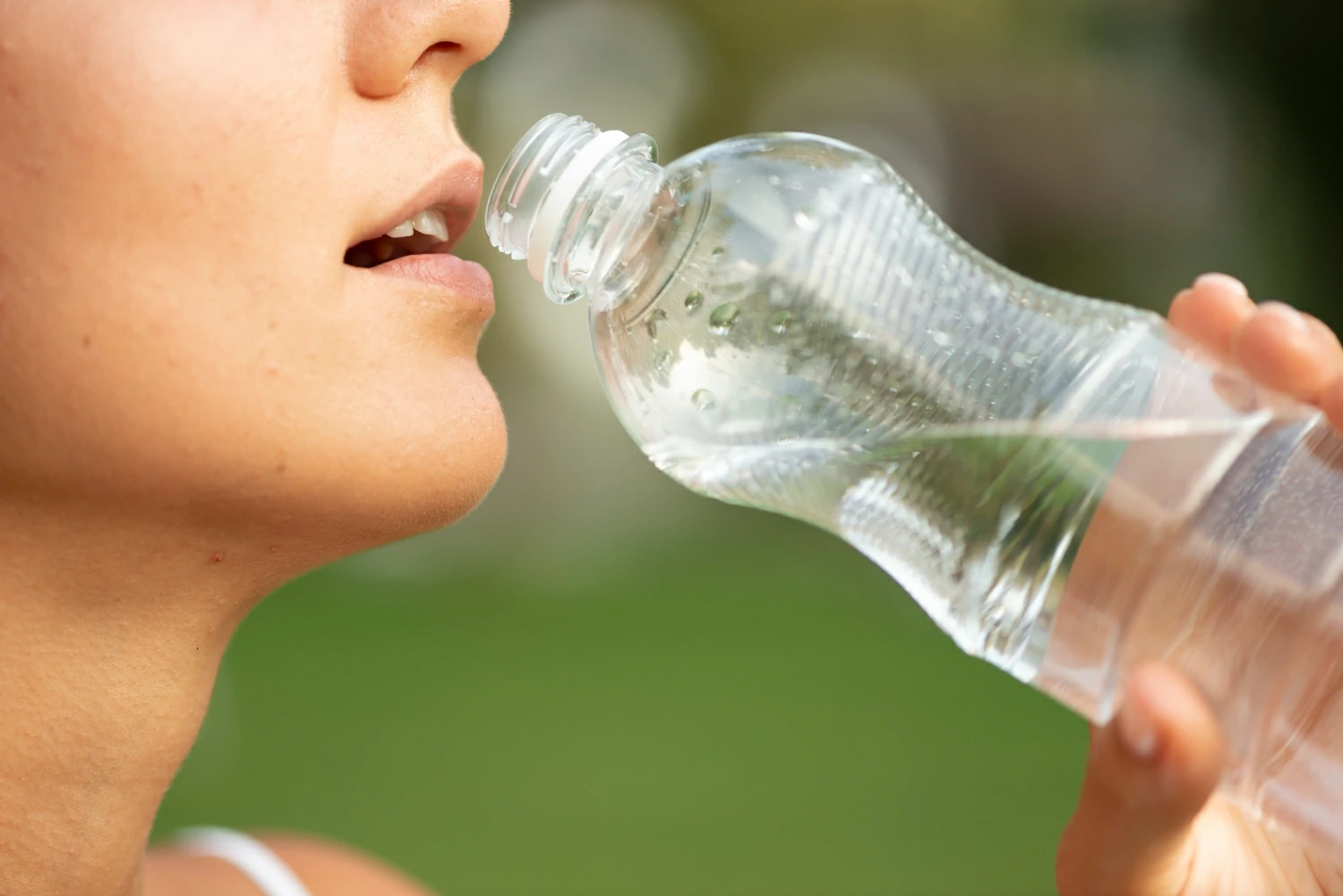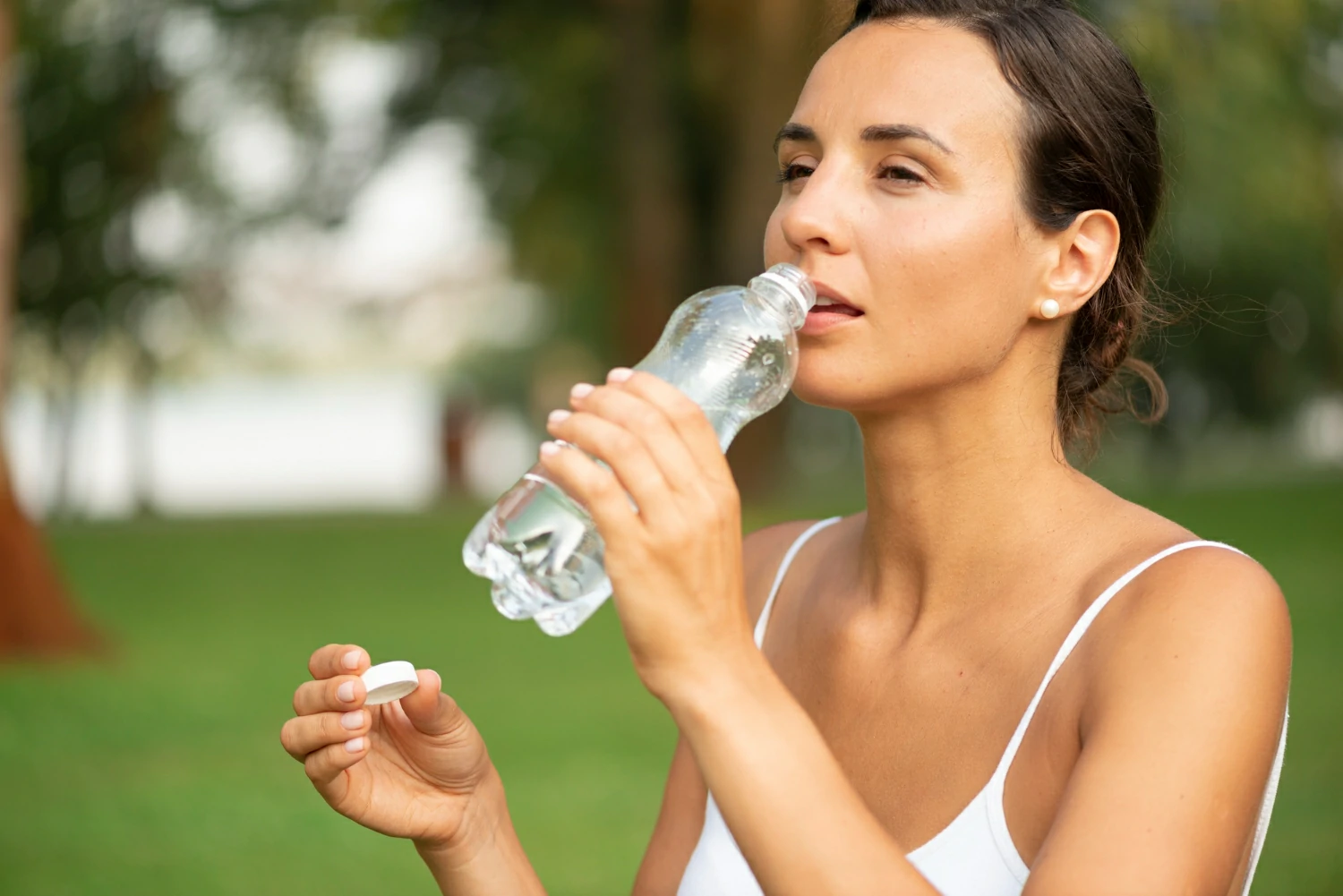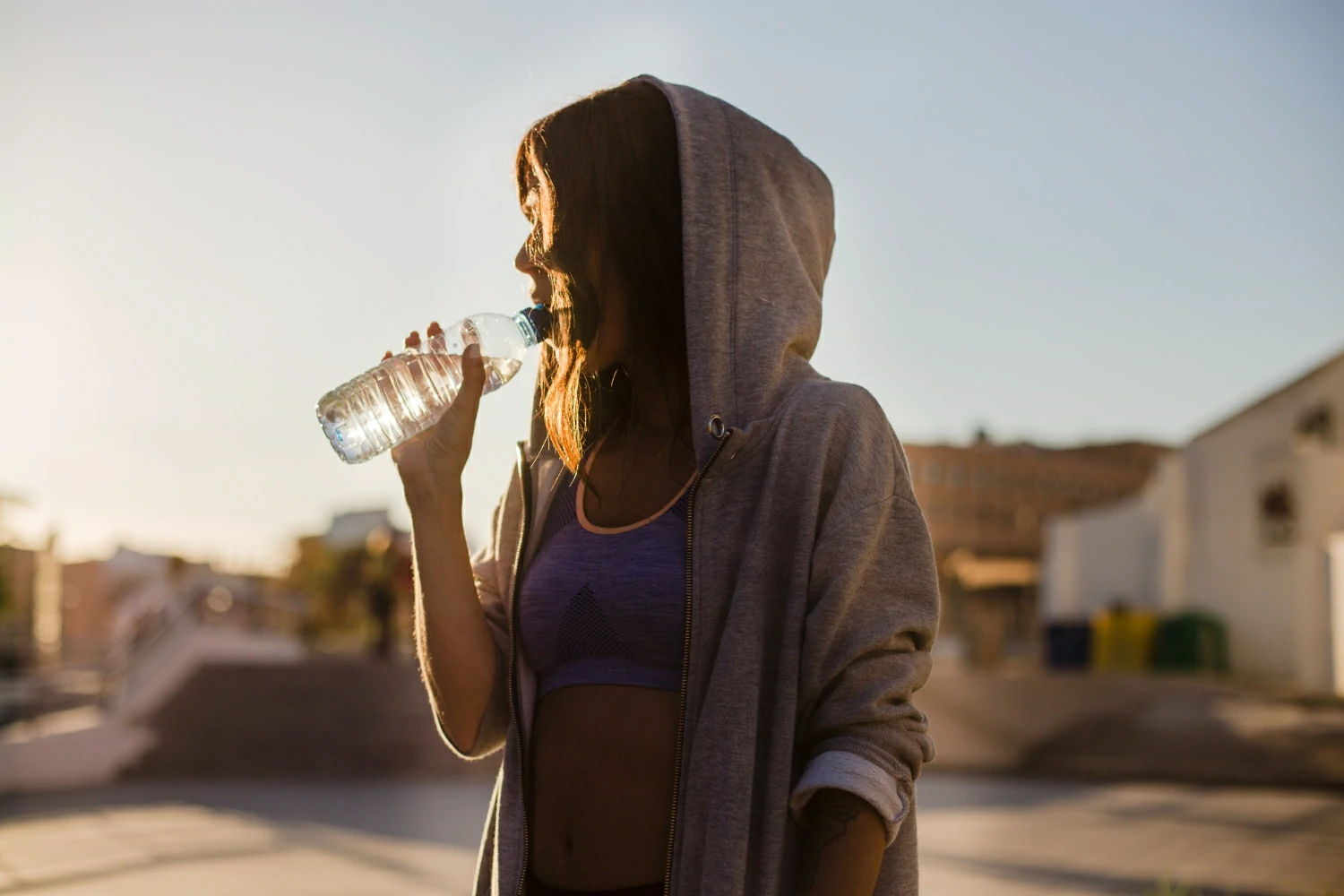Is hotel tap water safe to drink? Answer is – The safety of hotel tap water depends on a few factors. Generally, in developed countries with strong water regulations, hotel tap water is usually aligned with public water standards and safe to drink. However, in countries with less stringent water quality control, or in older hotels with outdated plumbing, it might be wiser to stick with bottled water. It’s always best to research your destination and, if unsure, err on the side of caution by asking the hotel staff about their water source and safety.
Summary
- Hotel tap water safety varies depending on location and the hotel’s infrastructure.
- Developed countries typically have safe hotel tap water due to regulations.
- Countries with less strict water standards may have unsafe hotel tap water.
- Older hotels might have contaminated water due to outdated pipes.
- Research your destination and inquire with the hotel about their water source if unsure.
Is Hotel Tap Water Safe to Drink

What is the concern with hotel tap water?
The thought of drinking hotel tap water can make some travelers hesitate. Concerns range from simple taste differences to more serious health worries. Here’s a breakdown of the primary reasons for caution:
Unfamiliar Source: Unlike at home, you don’t always know where a hotel’s water is coming from. It could be connected to the municipal water supply or drawn from a private well with varying levels of oversight and treatment.
Plumbing Issues: Older hotels sometimes have outdated plumbing systems. Lead pipes, while less common now, can leach harmful contaminants into the water supply, affecting both taste and safety.
Stagnation: Water in unoccupied hotel rooms can sit in the pipes for long periods. This creates a breeding ground for bacteria, potentially making the water less safe.
Regional Variations: Water quality standards and regulations differ across countries and even within regions. What’s considered safe in one place might not be in another.
Why water safety is important for travelers.
Staying hydrated is vital for health and well-being, especially when traveling. However, falling ill due to contaminated water can quickly ruin a trip.
Waterborne illnesses caused by bacteria, viruses, and parasites are common in some areas of the world. Symptoms can range from:
Mild gastrointestinal upset: Stomach cramps, diarrhea, nausea – enough to disrupt vacation plans and make for a very uncomfortable journey.
Severe illnesses: In some regions, water can carry parasites or viruses that cause dysentery, hepatitis A, typhoid fever, and other serious diseases. (World Health Organization – Waterborne Diseases)
Vulnerable populations: Certain people are more susceptible, including young children, the elderly, and those with compromised immune systems.
Dr. Sarah Lewis Expert Opinion
Dr. Sarah Lewis, a travel medicine specialist, emphasizes: “Water safety is often overlooked by travelers, but it’s a critical part of staying healthy abroad. Even if you’ve had no trouble drinking the water somewhere before, the situation changes constantly. Checking up-to-date advisories and taking precautions when necessary can make the difference between a fantastic trip and one spent feeling ill.”
Factors Affecting Hotel Tap Water Safety

1. Location
Location plays a crucial role in determining the safety of hotel tap water. Let’s break it down:
Water quality regulations in different countries: Every nation has its own standards and regulations governing the quality of drinking water. Countries with stricter regulations generally have safer tap water, while those with more lax oversight may present increased risk.
Developed vs. developing nations: Developed countries with robust infrastructure often have sophisticated water treatment systems and stringent regulations ensuring the safety of their public water supply. This frequently extends to hotels within their borders. However, developing nations may not have the same level of infrastructure or regulation, leading to potential contamination issues with tap water, even in hotels.
Professor Emily Carter Expert Opinion
“It’s important to research the local water safety standards for your travel destination,” advises environmental health specialist, Professor Emily Carter. “Websites like the Centers for Disease Control and Prevention (CDC) offer country-specific health information, including warnings about unsafe water.
2. Hotel Infrastructure
The age and maintenance of a hotel’s infrastructure significantly impact water quality. Here’s why:
Modern hotels vs. older establishments: Newer hotels are more likely built according to modern plumbing codes, minimizing the likelihood of lead contamination or other issues related to outdated systems. Older establishments, even those well-maintained, have a higher potential for problems stemming from old pipes.
The role of plumbing materials (lead pipes): Lead pipes were once commonplace in plumbing. While their use has been phased out in most places, older buildings may still retain them. Lead can leach into water, especially if it sits stagnant within pipes, causing serious health problems over time, especially in children. (Environmental Protection Agency – Basic Information About Lead in Drinking Water)
Water source (city supply vs. private well): Most hotels in urban areas are likely connected to the municipal water supply, which undergoes regular treatment and testing. However, some hotels, especially in more rural locations, might rely on private wells. Wells are not always subject to the same level of oversight as public water sources, increasing the risk of contamination.
How to Tell if Hotel Tap Water is Safe

While lab testing is the only way to get a definitive answer about water contaminants, there are several practical steps you can take to assess the safety of your hotel’s tap water:
1. Researching your destination
Don’t wait until you arrive! Proactive research is your first line of defense. Look for:
Government sources for water safety
- United States travelers: The Environmental Protection Agency (EPA) sets nationwide tap water standards. You can often find local water quality reports on your city or municipality’s website.
- Global destinations: The Centers for Disease Control and Prevention (CDC) provides country-specific health advisories, often including information about water safety.
Travel advisories regarding water quality
- State Department websites for your country of origin often issue warnings related to unsafe drinking water.
- Reputable travel blogs and forums can give real-world insights about water quality in specific hotels or locations.
2. Inquiring with the hotel staff
Don’t be afraid to ask! A simple conversation with the hotel front desk or concierge can be revealing. Here’s what to ask:
Water source and treatment
- Is the hotel connected to the municipal water supply or does it use a well?
- Does the hotel have any additional filtration or treatment systems in place?
Any known issues with water quality
- It’s best to be direct. Have there been any recent complaints or issues with the taste, smell, or appearance of the water?
Mr. Thomas Expert Opinion
“Remember, hotel staff are there to help,” points out hospitality veteran, Mr. Thomas Wright. “While they might not have scientific details, they’re often aware of any guest complaints or problems with the water. Their answer can guide your decision-making.”
3. Visual and Odor Inspection
Use your senses as a first line of assessment. Before drinking, check for:
Signs of discoloration, cloudiness: Clear water doesn’t guarantee safety, but cloudy water, unusual colors, or floating particles should raise a red flag.
Unusual smells or tastes: A strong chlorine smell might indicate overtreatment, while metallic or earthy odors are potential signs of contamination.
What to Do If You’re Unsure About Hotel Tap Water

1. Bottled Water
The most convenient solution is often bottled water. Be mindful of these factors:
Reputable brands: Opt for well-known bottled water brands, especially those with a verifiable seal of quality. In many countries, even small convenience stores or hotel shops will stock readily available, safe bottled water.
Environmental impact: Consider the environmental footprint of single-use plastic bottles. If possible, purchase larger containers to refill a reusable bottle. Look for hotels that offer filtered water stations for guest use.
2. Portable Water Filters and Purifiers
For frequent travelers, particularly those venturing off the beaten path, investing in portable water filtration or purification devices can be a wise choice:
Filters: These typically remove particles, sediment, and improve taste and odor, but may not eliminate all pathogens. Good choices for areas with generally safe water, but unappealing taste. Popular options include bottle filters like Grayl Geopress or LifeStraw.
Purifiers: These use more advanced technology, such as UV light or chemical treatment to neutralize a wider range of bacteria, viruses, and parasites. Ideal for locations with known water safety concerns. Consider products like the SteriPEN or MSR Guardian Purifier.
Dr. Michael Lynch Expert Opinion
Dr. Michael Lynch, an infectious disease specialist, cautions: “Filters and purifiers have different capabilities. If you have any health vulnerabilities or are traveling in a high-risk region, a purifier offers the most comprehensive protection.”
3. Boiling Water
An old-fashioned, yet reliable method when other options aren’t available. It’s important to follow guidelines:
Rolling Boil: The Centers for Disease Control and Prevention (CDC) recommends bringing water to a rolling boil for at least 1 minute to kill most pathogens.
Altitude Matters: At higher altitudes, water boils at a lower temperature, so increase boiling time to 3 minutes.
Cooling and Storage: Allow boiled water to cool completely before drinking, and store it in a clean, covered container.
Additional Considerations

1. Ice in hotel beverages
The question of ice safety goes hand-in-hand with concerns about tap water. Here’s the breakdown:
Source Matters: If the ice is made from the same tap water as in your room, the same concerns apply. In areas where you wouldn’t drink the tap water, it’s best to avoid the ice as well.
Commercial vs. Hotel Ice Machines: In many hotels, particularly larger chains, ice is often sourced from commercial suppliers that adhere to stricter safety standards than individual hotel water sources might. It’s still reasonable to ask the hotel staff about the origin of their ice.
Shape Clues: In some regions, commercially prepared ice often comes with a specific shape, like cubes with a hole in the middle. This can be an informal indicator of a safer source.
Dr. Rachel Parker Expert Opinion
“While you can generally trust ice in restaurants and hotels in developed countries, it’s best to inquire or simply skip the ice when in regions where tap water is questionable,” advises Dr. Rachel Parker, a travel medicine physician.
2. Brushing teeth with hotel tap water
Generally, it’s advisable to err on the side of caution if you’re unsure about the safety of the hotel tap water:
Minimizing Exposure: Even if you don’t drink the water, using it for brushing introduces some risk. While accidental swallowing of a small amount is unlikely to cause serious illness in healthy adults, it’s wiser to use bottled water for oral hygiene when concerned.
Young Children: Be extra cautious with young children who might swallow more water while brushing their teeth.
3. Sensitive individuals and health concerns
Certain groups need to take greater precautions when it comes to water safety:
Compromised Immune Systems: Individuals with weakened immune systems, whether due to medical conditions or treatments, have a higher risk of illness from waterborne pathogens.
Pregnancy: Some waterborne illnesses can be harmful to an unborn child. It’s advisable for pregnant women to stick to bottled or rigorously treated water.
Infants and Young Children: Children are more susceptible to dehydration and serious illness from waterborne diseases.
Dr. Parker Expert Opinion
“If you have any health concerns, consult your doctor before traveling,” emphasizes Dr. Parker. “They can offer personalized advice based on your specific medical history and destination.”
Conclusion
Whether traveling for business or pleasure, access to safe drinking water is essential. While hotel tap water is often safe in developed nations, exercising informed caution ensures that you avoid any unpleasant surprises.
Key Takeaways
- Location matters: Research your destination’s water quality standards in advance.
- Hotel infrastructure plays a role: Inquire about the hotel’s water source and any known issues.
- Don’t rely on looks and taste alone: Unsafe water doesn’t always have an obvious odor or taste.
- When in doubt, alternatives abound: Bottled water, portable filters, and boiling are reliable options.
- Be extra cautious with vulnerable groups: Children, those with health concerns, and pregnant women may need stricter precautions.
FAQs
Q: Is it safe to use hotel tap water for making coffee or tea?
If the water is boiled during the preparation of coffee or tea, this will generally kill most pathogens, making it safer to consume. However, if you’re unsure about the water source, it’s wiser to use bottled or filtered water for hot beverages as well.
Q: Can I use hotel tap water to refill my reusable water bottle?
This depends on the factors we’ve discussed. If you’ve established that the tap water is safe and you have a clean water bottle, it’s generally fine. However, consider a bottle with a built-in filter if you have any concerns, especially for areas with questionable water safety.
Q: What if I accidentally drink some of the hotel tap water?
Don’t panic! In most cases, accidentally ingesting a small amount, even if the water isn’t ideal, is unlikely to cause serious illness. Monitor yourself for any gastrointestinal symptoms, and if you have severe or prolonged symptoms, consult a local doctor.
Q: Is it rude to ask the hotel staff about their water?
Absolutely not! Hotels want their guests to be comfortable and safe. Your inquiries demonstrate that you are a responsible traveler.






